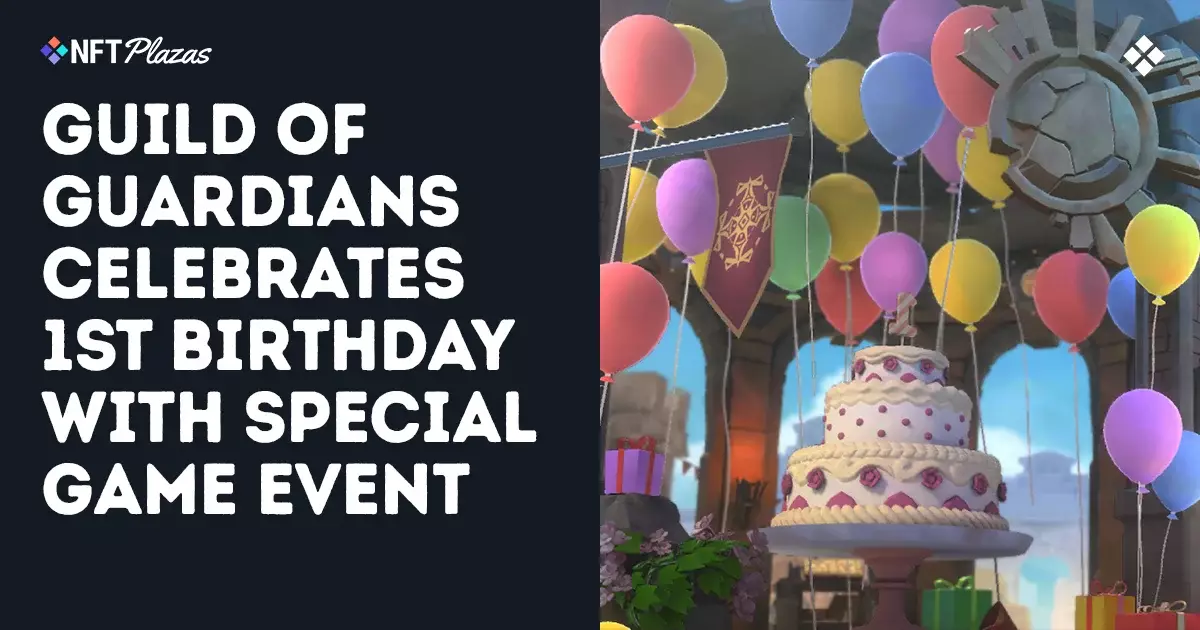In the past few years, blockchain technology has started to revolutionize the gaming industry. Particularly, Non-Fungible Tokens (NFTs) have become the glowing jewels in this high-stakes casino. Games like “Guild of Guardians” are capitalizing on this trend, but one must tread carefully in this wild new frontier. It’s not that sector is wholly negative; in fact, it holds some potential to reshape ownership and rewards in gaming. However, as we celebrate milestones like the one-year anniversary of such projects, it’s essential to discern the difference between genuine innovation and a flashy facade that could lead gamers into disappointment.
While NFTs promise true ownership of in-game assets, they paradoxically bind gamers to investments that require both financial commitment and emotional attachment. The anniversary of “Guild of Guardians” is certainly a showcase of how to attract players by introducing exclusive rewards and experiences. But one can’t help but question whether these digital tokens genuinely add value or serve merely as a clever marketing ploy packaged as innovation.
Event-Driven Engagement: A Double-Edged Sword
Celebratory events such as the one marking the first year of “Guild of Guardians” are crucial for sustaining engagement in the NFT gaming landscape. Players can dive into competitions, earn exclusive rewards, and enhance their in-game status. The understanding is that the more players participate, the more the game flourishes; however, this heavy reliance on event-driven motivations raises questions about long-term player loyalty.
Are players genuinely enthralled by the gameplay, or are they merely lured by the rare skins and in-game items? Events that promise “exclusive” and “rare” rewards can create an illusion of scarcity and urgency, but it’s vital to remain skeptical about the longevity of such appeal. Once the novelty wears off, will players still want to engage with a game that heavily banks on momentary excitement instead of solid, compelling gameplay mechanics?
The Intrinsic Value Dilemma: Are NFTs Worth It?
The crux of the NFT gaming model lies in the perceived value of the assets being traded. For instance, “Guild of Guardians” allows players to summon characters and collect items that can be freely traded among participants—a venture that sounds enticing. But it’s important to confront the uncomfortable truth: the value associated with these NFTs is often based on community sentiment rather than tangible, intrinsic worth.
A player’s investment in these assets hinges on the game’s sustainability and market dynamics, which are notoriously volatile; there is a real risk of being left with assets that hold little to no value when interest wanes. As players flock to participate in events for rare Guardians or skins, one might wonder—are they genuinely engaging with the game, or simply chasing fleeting trends?
The Dark Side: Speculation vs. Gaming Experience
In the pursuit of scarce NFTs and top leaderboard spots, the atmosphere can quickly devolve into speculation. Competitiveness is undoubtedly a pleasurable aspect of gaming; however, once competitive spirit morphs into sheer financial speculation, the authenticity of gaming experiences fades. The leaderboard-driven rewards in events like the “Rise of the Founders” can turn passionate players into mere traders, far removed from the excitement that brought them to gaming initially.
Will the joy of gaming be replaced by the thrill of hoping your NFT assets appreciate in value? That’s a dangerous gamble that can potentially turn players away from a community-driven gaming culture and into the realm of financial transactions.
Inclusion vs. Exclusion: The Cost of Premium Access
“Guild of Guardians,” alongside many other NFT-based games, introduces significant barriers to entry when it comes to premium features and exclusive events, all available for a price. A $29.99 premium tier for an Anniversary Event Pass may not seem excessive, but the psychological impact of needing to spend money to access valuable in-game content can be disheartening. This creates a stark divide between casual gamers and those willing to pay a premium to unlock better experiences.
The question then arises: Is this model promoting inclusiveness and community growth, or is it driving a wedge that prioritizes wealth over skill? As such gaming systems evolve, the disparity can foster resentment among players and lead to a decline in overall engagement. The gaming world risks alienating those who might not have the financial means to keep up, despite their passion and commitment to the game.
The celebration of achievements and innovation within the NFT gaming space is certainly compelling, but it’s imperative to view these advancements with a critical eye. In the quest for rewarding and meaningful experiences, one should remain aware of the risks that come along with this new digital frontier.

